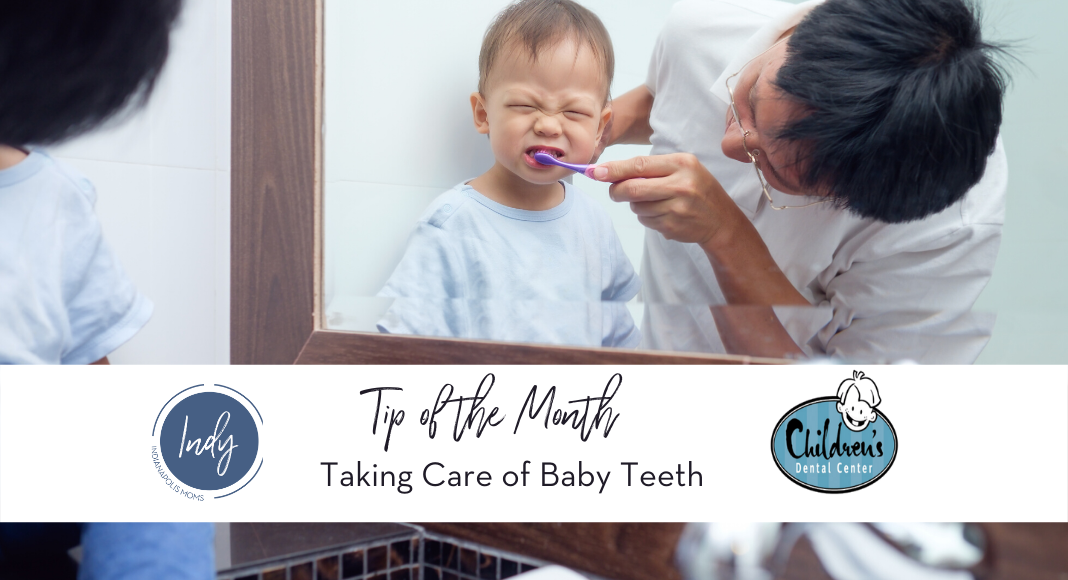
Nothing is more exciting than when your baby sprouts their first tooth! But what does that mean for you as their parent? There are so many questions that many of us have when this milestone happens, so we had the experts at Children’s Dental Center share with us some tips we should know about taking care of those baby teeth!
How to Start Brushing:
- When children are too young to brush on their own, brush their teeth for them. Laying them on their back can make it easier to see their teeth and reach all the areas of their mouth. Use a small amount of fluoride toothpaste to protect their teeth. Try to brush two times a day. Brush both the front and back of their teeth.
- To make brushing fun, play games with your child. See who can say “ah” the longest. Allow your child to brush your teeth while you brush theirs. The more you can make brushing into a positive experience, the easier it will be to get them to cooperate next time.
- As children start to grow, they can brush on their own with supervision. Help them to use the proper amount of toothpaste so they don’t swallow too much. It can also be helpful if you brush in front of them so they can see you practice important dental care habits. Continue to brush two times a day.
Tooth Health Habits + More:
- Choose the right toothbrush. You want one with a small head, soft bristles, and a large handle.
- As soon as children have two teeth that touch, you should begin to floss them daily.
- Avoid sugary drinks and food. This can go a long way in preventing damage and decay. We have a list of foods that aid in your child’s dental health.
- If you notice any brown spots or discoloration, schedule an appointment with a pediatric dentist. They can help to treat decay before a tooth becomes permanently damaged or falls out prematurely.
- Form a habit of regular dental check-ups. Even if you don’t notice any problems, your baby should have his or her first dental visit by age one. This will help doctors to catch any problems early. You will also be able to learn about problem areas in your child’s mouth. The staff will also give you more tips for successfully caring for your child’s oral health.








